Mozambique: Mondlane supports IL's vote against Portuguese president's visit
Mozambique: Failure of meeting between Nyusi and Momade may have led to current crisis – AIM report
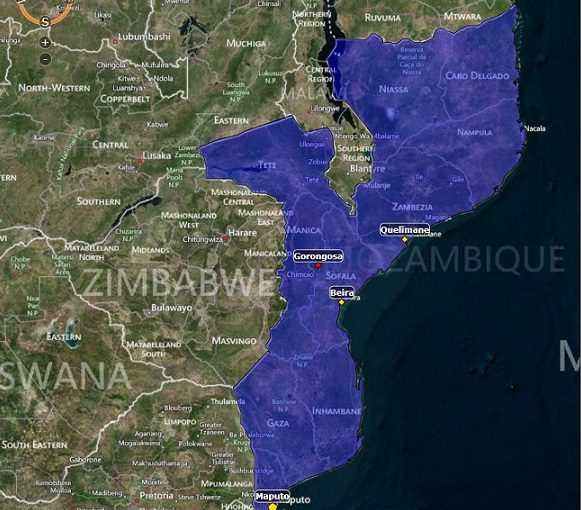
The current crisis in the talks between the Mozambican government and the opposition party Renamo may have arisen because a planned meeting between President Filipe Nyusi and the coordinator of the Renamo political commission, Ossufo Momade, in the central city of Quelimane did not take place.
In the latest issue of his newsletter, one of Mozambique’s most prominent investigative journalists, Marcelo Mosse, claims that Nyusi tried to meet Momade in Quelimane during a visit to Zambezia province in June – but the senior Renamo military leadership vetoed the idea.
Mosse said that the Swiss ambassador, Mirko Manzoni, who heads an informal international contact group, contacted Renamo in order to arrange the logistics for taking Momade from the Renamo military base in the Gorongosa mountains in Sofala province to Quelimane.
But the request came late and the Renamo military wing said no – for, despite his Renamo rank as a general, and despite being the top figure in the Renamo political hierarchy, Momade is not in full charge of the Renamo militia. He lacks the authority enjoyed by the late Renamo leader, Afonso Dhlakama, who died unexpectedly on 3 May.
Mosse writes that the Renamo military command does not fully trust Momade, and suggests there may be an ethnic basis to this: there are about 20 men in the Renamo military command, who are mostly from the Ndau ethnic group, to which Dhlakama also belonged.
Momade, however, is a northerner, a speaker of the Makua language from Nampula province. In the early days of the war of destabilisation, Momade was a member, not of Renamo, but of the government army, the FPLM.
Mosse says that Momade had no option but to obey, and neither Mazzoni, nor the US ambassador, Dean Pittman, were able to persuade the Renamo military to change their minds.
The message this sent was that the Renamo military are still calling the shots, thus endangering the hopes that the negotiations between Nyusi and Dhlakama over the demilitarisation of Renamo can be brought to a successful close.
Prior to his death, from a sudden diabetic crisis, Dhlakama was optimistic that a successful conclusion to the negotiations would soon be achieved, and Nyusi was similarly optimistic.
But since Dhlakama’s death, there has been no evident progress in the talks. Indeed, it is not clear whether Dhlakama kept the rest of the Renamo leadership fully briefed on his negotiations with Nyusi. The informal model of the discussions between Nyusi and Dhlakama, often over the telephone, means that there is no written record of decisions made.
Consensus was achieved on the other major point in contention – that of decentralisation. In this area, Renamo got what it wanted – the election (albeit indirect) of provincial governors and district administrators – and these changes were enshrined in constitutional amendments approved by the country’s parliament, the Assembly of the Republic, in May.
But for the amendments to take effect, the electoral legislation must be altered, bringing it into line with the Constitution. It is particularly urgent to amend the legislation on municipalities, otherwise it will be impossible to hold municipal elections on the scheduled date of 10 October.
So an extraordinary sitting of the Assembly was scheduled for 21 and 22 June – but, less than 24 hours before the sitting was due to start, the parliamentary group of the ruling Frelimo Party demanded some sign of good faith from Renamo on demilitarisation.
Only some indication that Renamo will indeed demobilise and disarm its militia, incorporating its members into the defence and security forces, or back into civilian life, would allow the extraordinary parliamentary sitting to take place. With its parliamentary majority, Frelimo can determine when (and whether) the sitting can take place.
Mosse points out that, for Frelimo, the demilitarisation of Renamo “is a sine qua non for advancing with elections in the new legal context. It is a question of guaranteeing that Renamo will demilitarise”.
For Renamo the key issue is to include its men in senior positions in the armed forces and police. While this was certainly under discussion between Nyusi and Dhlakama, the details of what the two men may have agreed are far from clear.
Since 20 June, the impasse has apparently continued, with neither side prepared to back down. Time is running out, if the municipal elections are to be held this year at all – and postponing the elections into 2019 would violate the Constitution.
Despite the deadlock, all the main parties are pushing ahead with choosing their mayoral candidates. The Mozambique Democratic Movement (MDM) has already announced its candidates for all municipalities except Maputo City. Frelimo and Renamo have been sending brigades around the country to handle the internal consultations and elections that culminate in selecting candidates.
Suggestions have been made that the extraordinary parliamentary sitting will be held in the second half of July, thus allowing changes to be made to the electoral legislation, which will permit elections, though perhaps with a delay of two or three weeks.


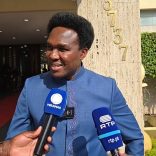
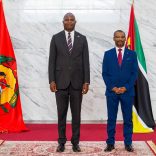
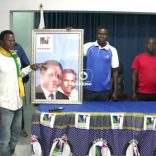


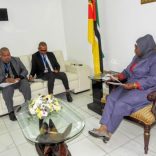





Leave a Reply
Be the First to Comment!
You must be logged in to post a comment.
You must be logged in to post a comment.